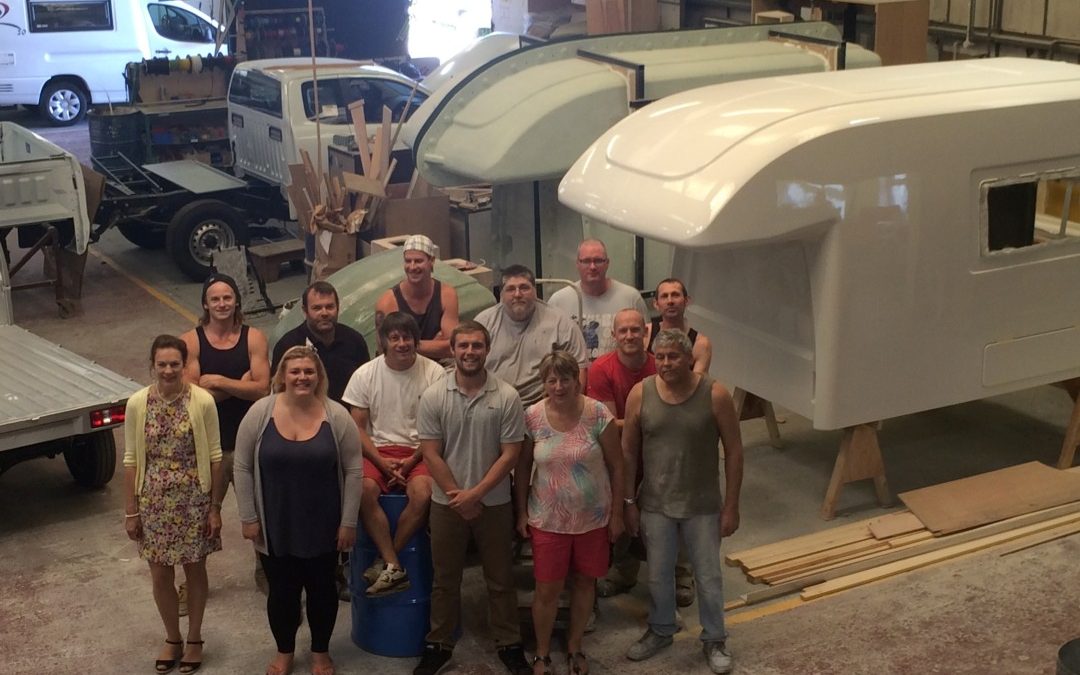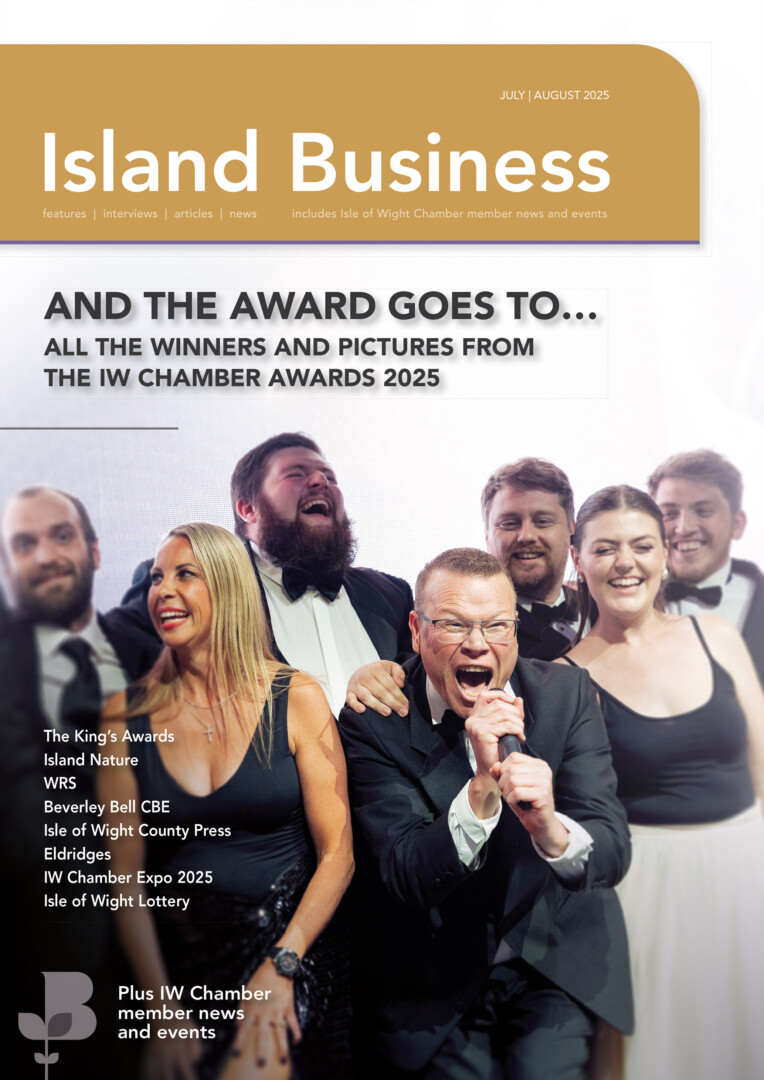Brian Bailey has worked in the composites industry for decades, first working with composites at Island Plastics in the 1970s. He’s currently working as a consultant for Addabak and DJAB Limited based in Prospect Road Cowes and both companies are run by his son and daughter Dan and Jess Bailey. The team are getting ready for a busy end of year, with the launch of a new product developed by DJAB, with Addabak Ltd continuing to produce products for a well known brand of motorhome.
“We have interest from Russia, Germany and northern Europe and hope to export our products next year,” says Dan Bailey. “We have high hopes that this will be a winner. We intend to develop a modern, up-to-date product which is lightweight, flexible, adaptable and exportable. Our fitters are ahead of the game and Addabak continue to build Romahomes for the Freeborn group, which have overcome EU regulations affecting conformity. We’ve researched this area and we think that there is an export market for these products.”
The team are currently on the last stages of development and hope to launch the first of a range of de-mountable products for the automotive sector which could be used to convert both leisure and commercial vehicles. It’s been a long 12 months for the Bailey family. In late 2013 they adapted quickly to events, taking on new staff and completely changing the direction of their new company.
“Addabak was initially created last summer,” explains Dan. “The plan was to convert shipping containers into living accommodation. While we were waiting for this to happen Romahome Ltd ceased trading and a deal was made with the Freeborn group for Addabak to produce Romahomes for them. Addabak took on the workforce from Romahome and started production. Developing our own composite products was the obvious next step. We hope to officially launch in October, with advertisements in UK trade magazines to start with. As the team progresses we’ll move on to the German, Swedish and other markets.”
Addabak and DJAB are ambitious and expect to be producing between 12 and 20 vehicle conversions a month. Along with the European market they also have Russia’s growing leisure industry in their sights, as well as ongoing conversations with commercial companies looking for fleets of vehicles.
“Staff and skills are key, as well as having the right premises to work in, but finance is always the biggest challenge,” Dan says. “The start-up design and development of products can take up to nine months, so that’s a lot of labour and materials costs before you can take any deposits or sell your product. There’s a development cost of around £80-£90,000. Even then, you still have work-in-progress to consider as production starts, with products in various stages of build. Funding this can take another £80,000 so it’s been a sizeable investment for us.”
First published in the August 2014 issue of Island Business magazine.



